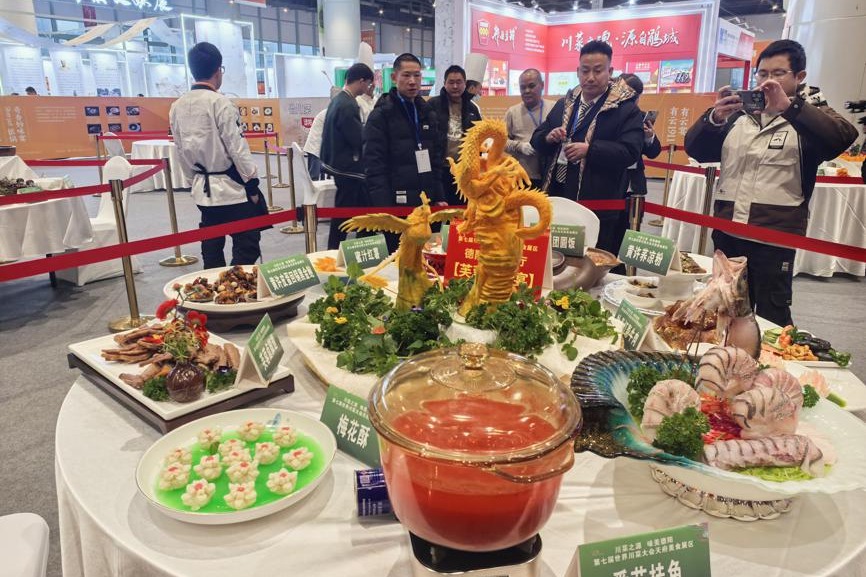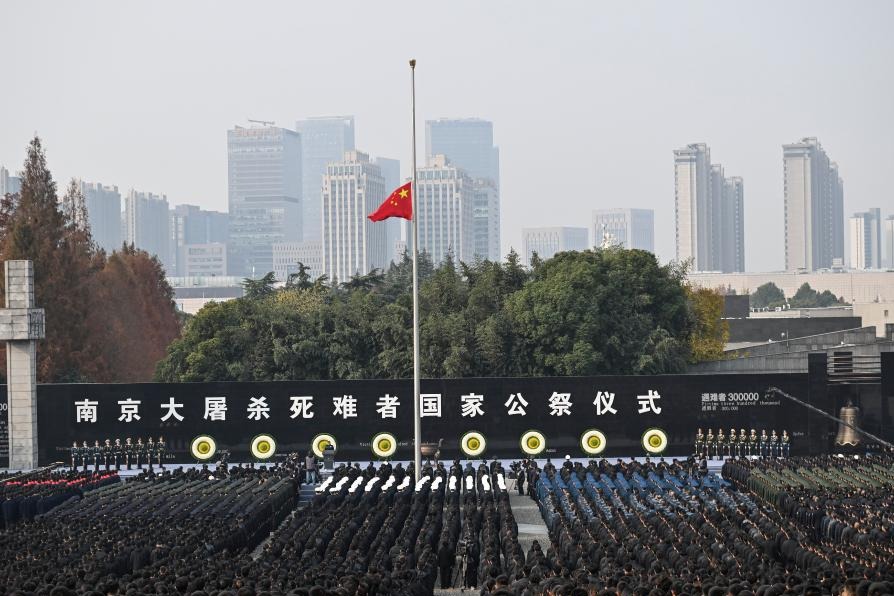Xi Story: Self-reform, CPC's new answer to 'rise and fall question'

BEIJING -- In cave-dwellings on the Loess Plateau, desks, maps, ink, kerosene lamps and other items are kept the way they were used in the Yan'an period (1935-1948) of the Communist Party of China (CPC).
Less than a week after the conclusion of the 20th CPC National Congress in 2022, Xi Jinping, general secretary of the CPC Central Committee, led the members of the Standing Committee of the CPC Central Committee Political Bureau to the old revolutionary base in Shaanxi Province, northwest China.
They were attracted to a yellowing photograph showing Mao Zedong welcoming acclaimed educationist Huang Yanpei to Yan'an at a local airport on the wall of Mao's cave residence in Yangjialing, where a well-known "cave-dwelling conversation" happened.
The conversation was mainly about how to escape the historical cycle of government's rise and fall. Mao had offered the first answer -- placing the government under the supervision of the people.
This well-known conversation has been repeatedly invoked by Xi, also Chinese president and chairman of the Central Military Commission, as a warning of the complicated and long-term risks faced by the governing CPC, and he offered the second answer -- carrying out self-reform of the Party.
When he assumed the Party's top post in 2012, China had already risen to be the world's second-largest economy and the Party had over 80 million members.
Xi was keenly aware of the increasingly grave dangers facing the whole Party, as noted in a document from the 18th CPC National Congress, including a lack of motivation, incompetence, the risk of being out of touch with the people, and corruption.
Less than 20 days after assuming the Party's top position, Xi spearheaded the formulation of the central Party leadership's eight-point decision on improving conduct. This move effectively put an end to undesirable practices, such as excessive banqueting and extravagant spending.
Shortly after this initiative, an unprecedented fight against corruption, which Xi said was "the most significant threat" to the long-term governance of the Party, was launched, targeting literally every sector and striking at both high-profile "tigers" and low-ranking "flies."
Xi has emphasized the importance of anti-corruption institutional building. Concrete efforts have been made in this regard since 2012, including the issuing of the Code of Conduct for Intraparty Political Life under New Circumstances and the promulgation of the Supervision Law. He had famously said that "power must be kept in the cage of systemic checks" and "transparency is the best precaution against corruption."
In short, he likens self-reform to "using a surgical knife to eliminate the Party's ailments." "The Party is great not because it never makes mistakes, but because it always owns up to its errors and has the courage to confront problems and reform itself," Xi once said.
Xi leads the Party by example through his actions. During a visit to Guangdong, he insisted on not imposing traffic controls that could disturb the public. In an inspection trip to Hebei's Fuping County, he stayed in a 16-square-meter room, and in Shaanxi's Liangjiahe Village, he paid for New Year's gifts for local villagers out of his own pocket.
Through more than a decade of painstaking efforts, the problem of lax and weak self-governance in Party organizations has been addressed at the root, and a political atmosphere of integrity within the Party has been steadily fostered and developed. By doing so, it has been ensured that the Party will never change its nature, its conviction, or its character.
In retrospect, the Party has counted on external oversight by the people and internal self-reform to maintain its vitality and continuous growth, Xi said.
The Party's over 99 million membership celebrates the 103rd anniversary of the CPC's founding on Monday. On June 27, Xi presided over a group study session of the CPC leadership. The topic was about improving the systems for exercising full and rigorous Party self-governance.
"All of us in the Party must bear in mind that full and rigorous self-governance is an unceasing endeavor and that self-reform is a journey to which there is no end," Xi said at the session, urging that the whole Party must remain vigilant and resolute to prepare for tough tests.
- Experts: China poised to compete globally in AI large models
- Beijing's 3 new subway lines operational
- Beijing adds 3 new metro lines, further easing downtown traffic
- Expats donate blood at Shanghai charity event
- Subway delivering parcels, a boost to low-carbon logistics underway
- Three Gorges project generates 1.7 trln kWh of power





































